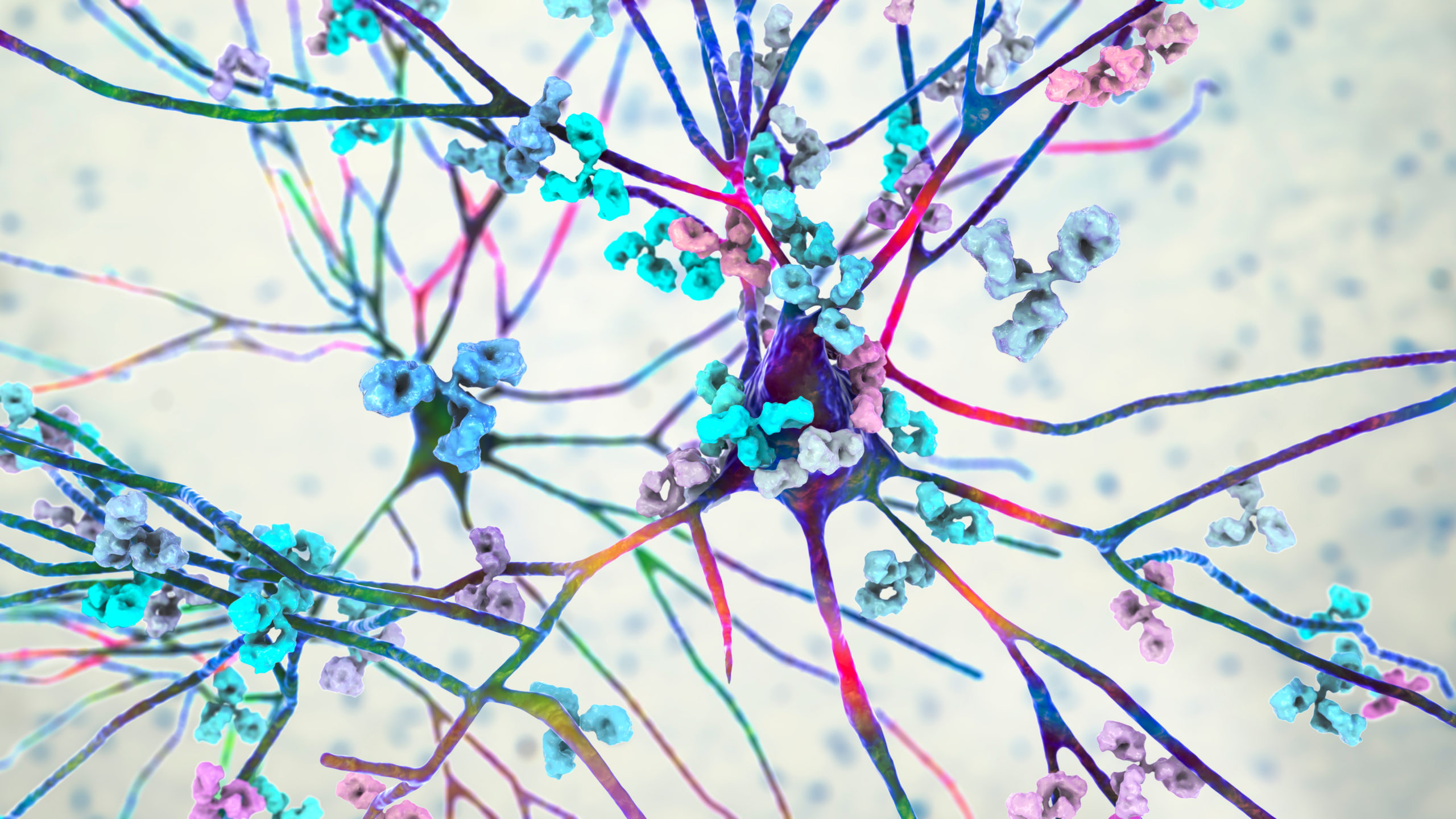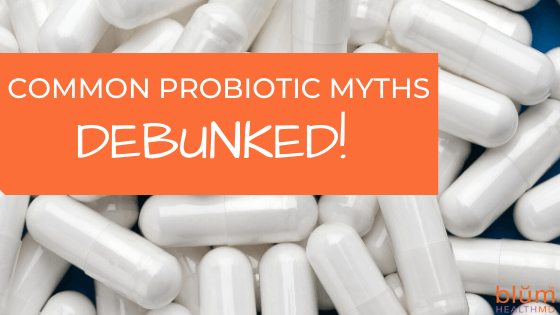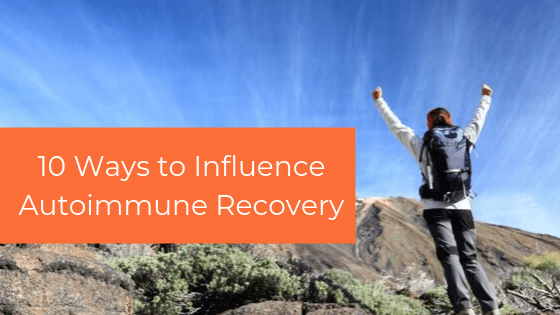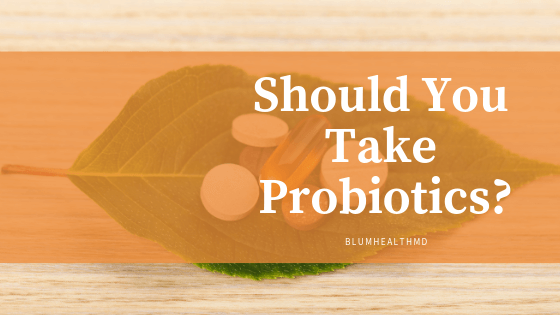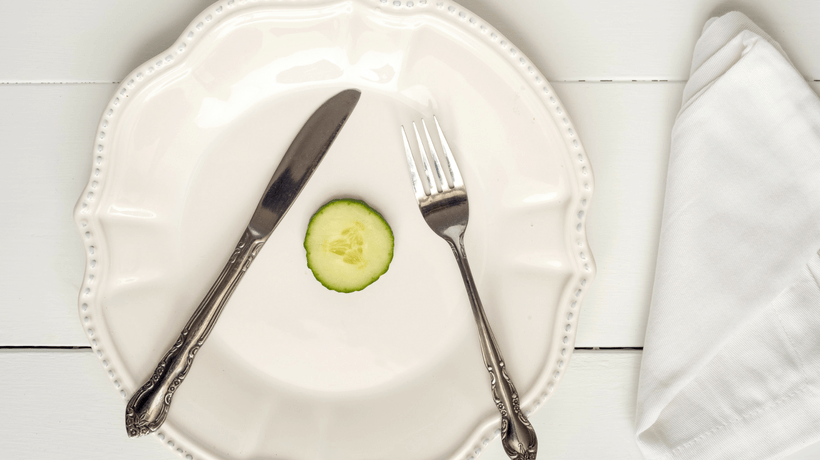
Are you trying to lose weight and just can’t seem to get the scale to budge? You may even feel like you’re doing everything “right” to no avail. Some people blame their metabolism or wonder if their age or gender is the issue. Some people go through a life transition like a stressful time or childbirth or menopause and feel like their body has never been the same since. Does this sound like you?
If so, don’t despair. It does not have to be this way. There is usually an underlying reason to stubborn weight loss.
10 Reasons You Can’t Lose Weight
1. Portion Distortion — You might find it hard to believe but portion size alone is often a culprit, particularly in the United States where portion sizes have grown over the years. Researchers have found, for instance, that meal sizes at restaurants have tripled in size since the 1970s¹ and the plates we serve our meals on have also increased in size.2 At every turn, we are encouraged to eat more than we need.
In my health coaching practice at Blum Center for Health, I find that many people overdo it on “healthy” foods. Prime example: Nuts are healthy addition to your diet — they are a healthy fat, a good source of protein, fiber and have anti-inflammatory properties. But, one serving of Brazil nuts, for example, is two nuts. Yes, one serving is only 2 nuts! One serving of almonds is six nuts. If you’re eating nuts like popcorn, you’re not going to lose weight.
While I’m not a big fan of calorie counting, I do think using a phone app, like My Fitness Pal, for a week will give you an accurate view of your caloric and nutrient intake. How much fiber are you consuming? How much sugar, for example? This is important information for weight loss.
2. The Right Mix of Nutrients — Beyond the amount you are eating, is what you are eating. Are you living on rice cakes and cottage cheese, thinking that low-calorie diet foods are going to help you reach your goal? That strategy is likely undermining your weight loss objective. Weight loss is often about moving away from processed foods and into a whole foods, anti-inflammatory food plan that includes increased fats, ample protein and unlearning the reliance on empty carbs, even the so-called “healthy” ones like gluten-free bread and “nutrition” bars. This will ramp up your metabolism, jumpstart weight loss and teach you to eat for life, rather than going on and off diets continually.
3. Chronic Stress — Stress is a major player in stubborn weight loss. We live stressful, fast-paced lives. Stress elevates cortisol and adrenaline, hormones responsible for “fight or flight” in what your body perceives as an emergency — something as serious as jumping out the way of a careening car, or something as nerve-wracking as public speaking. Once the event is over, our cortisol and adrenaline levels return to normal. This is a healthy stress response.Chronic stress, however, creates havoc in the body. Cortisol levels, which spike during a stress-inducing event, remain elevated. Think … a stressful job, a stressful relationship or even the everyday stress of “getting everything done.”This rise in cortisol puts a damper on weight loss. In fact, chronically elevated cortisol can cause weight gain!3 And, perhaps even more importantly, as Susan Blum, MD, discusses in her book, The Immune System Recovery Plan, this increased baseline can damage the immune system and prevent it from healing. Ultimately, chronic stress can have a negative effect on the levels of good bacteria in the gut, reducing the ability of the immune system to fight infection and puts us at risk for autoimmune disease.
4. Lack of Consistent Quality Sleep — Research4 demonstrates that even slight sleep loss boosts cortisol levels and can accelerate the development of insulin resistance. In fact, one study found that getting just 30 fewer minutes sleep than you should per weekday can increase your risk of obesity and diabetes.5 Not getting enough sleep is related to a host of other issues including heart disease, high blood pressure, accidents, mood disorders, depression and decreased productivity.
5. Inflammation — Do you unknowingly fill your body with foods that create systemic inflammation, a slow, quiet disturbance that never seems to shut off?The fact is, If we could “see” the damage, like we can feel and see a swollen ankle, surely we would ban those substances from ever entering our mouths!Systemic inflammation is our body’s immune response to substances it sees as a foreign invader. Over time chronic inflammation can lead to many heavy-hitting diseases, such as heart disease, many cancers and even Alzheimer’s. It is also associated with allergies, anemia, asthma, autism, arthritis, carpal tunnel syndrome, celiac, Crohn’s, fibromyalgia, gall bladder disease, GERD, Hashimoto’s, psoriasis, and more6.
Inflammation makes us feel sluggish, bloated, and gives us achy joints or muscles. It is associated with high blood pressure, blood sugar problems, headaches, depression and anxiety.
And for those struggling to lose weight, inflammation makes you, well … inflamed. You see, there is a very important hormone, called Leptin, that regulates your body’s level of fat by controlling your appetite and metabolism. In healthy people, the production of leptin signals the brain to suppress appetite and speed up metabolism—leading these people to feel less hunger, burn more calories and lose the excess fat. Chronic inflammation, however, impairs the brain’s ability to receive leptin’s appetite-suppressing message.
To put the fire out on inflammation a great place to start is with an elimination diet to determine which foods are triggering inflammation. A program like HealMyGut includes the ever-important elimination diet and all the supplements you need to address shoring up your gut lining and returning bacterial balance to your digestive tract. I just finished it myself after taking antibiotics for a month to treat Lyme Disease. I feel great! Learn More.
6. Thyroid Dysfunction — The American Thyroid Association7 estimates that 20 million Americans have a thyroid problem, and that up to 60% are unaware of their condition. Whoa, that’s jaw-dropping! Hypothyroidism, a condition where the thyroid gland does not produce enough thyroid hormone, is characterized by unexplained weight gain and/or difficulty losing weight. To find out if your thyroid gland is functioning properly, you will a blood test ordered by your doctor. I highly recommend working with a functional or integrative physician who will look beyond whether or not your numbers are “in range,” including lifestyle and mind-body medicine.
7. Insulin Imbalance — If your blood sugar levels and insulin are off, you can experience carb cravings, difficulty losing weight and excess belly fat. Insulin resistance means your cells can’t absorb the extra blood glucose your body keeps generating from the food you eat, and your liver converts the glucose into fat. Processed foods, including beloved foods like pasta and bread, sugary drinks, and even foods marketed as “healthy,” like granola bars, play a role in insulin resistance. Insulin imbalance can give rise to Type 2 diabetes so it is important to get those numbers under control. Again, I recommend working with a functional or integrative physician who will also address lifestyle factors that contribute to insulin issues.
8. Estrogen Dominance — Too much estrogen relative to progesterone plays a role in weight gain. Estrogen dominance can cause increased cravings and decrease metabolism. If you are experiencing more cravings, and particularly for sugar, it’s entirely possible to fall into a loop that feels like you have no control over those cravings. Increased cravings combined with a sluggish metabolism is a recipe for weight gain.To learn more about Estrogen Dominance, and its symptoms, check out this article: Do You Have Estrogen Dominance.
9. Low Testosterone — Research8 shows that testosterone levels in men often drop with age and this can cause an increase in body fat, insulin resistance, heart disease and even certain cancers. The inverse is also true: being overweight causes testosterone levels to drop even more. A tell-tale sign of low testosterone is belly fat in the mid-section that is resistant to weight loss.
10. Toxic Overload — Everyday you are exposed to chemicals, pesticides, herbicides, heavy metals, hormones, medications and other toxins that create a toxic load in your body. These toxins are found at every turn — in your food and water, household cleaning products, cosmetics, candles and plastics. Even seemingly healthy products, including shampoo and conditioner, face cream, toothpaste and your favorite sandwich bread, can contain toxic ingredients.Toxins affect hormones and can create hormonal imbalances that lead to weight-loss resistance. When you carry a toxic burden, leptin, the hormone that tells the brain to burn fat for energy, does not do its job of informing the brain to burn fat. So, even if you are eating well and exercising weight loss becomes stymied when your body is in a state of toxicity.Personally, I detox at least once a year and use Dr. Blum’s Simply Detox program. It includes everything — a real food detox food plan, detox supplements and daily email. Learn more.
Losing weight can feel difficult but it does not have to be impossible. Your hard work can pay off. It’s a matter of figuring out the underlying challenges. Not sure where to start? Explore one area at a time and put a plan in place. If you feel overwhelmed, you might want to consider working with a Health Coach (hey, I’m one!) who will help you create a plan and stick with it. Even if it’s not me, (sniff, sniff), a health coach can be your greatest ally, helping you clear away the noise and the overwhelm that often gets in the way of success. Learn more about CoachMe.
Check out Dr. Blum’s FREE 3-part video series! How To Boost Your Immunity and Resiliency to Viruses: DOWNLOAD FREE NOW
Meet Melissa: Melissa Rapoport is the Manager of Health Coaching and Lifestyle Programming at Blum Center for Health in Rye Brook, NY. She combines her graduate work in Developmental Psychology with her education in nutrition, health and coaching to create highly individualized programs that result in lifetime change. A contributing author to three international bestselling books, Melissa’s greatest joy is her relationship with her two daughters.
Resources:
-
Young, L. R., & Nestle, M. (2002). The contribution of expanding portion sizes to the US obesity epidemic. American Journal of Public Health, 92(2), 246–249.
-
Wansink, B., & van Ittersum, K. (2006). The visual illusions of food: Why plates, bowls, and spoons can bias consumption volume. FASEB Journal, 20(4), A618.
-
Moyer, A. E., Rodin, J., Grilo, C. M., Cummings, N., Larson, L. M. and Rebuffé-Scrive, M. (1994). Stress-Induced Cortisol Response and Fat Distribution in Women. Obesity Research, 2: 255–262. doi:10.1002/j.1550-8528.1994.tb00055.x
-
Leproult R., Copinschi G., Buxton O., Van Cauter, E. (1997) Sleep loss results in an elevation of cortisol levels the next evening. Sleep. 20(10), 865-70.
-
Endocrine Society. (2015, March 6). Losing 30 minutes of sleep per day may promote weight gain and adversely affect blood sugar control. ScienceDaily. www.sciencedaily.com/releases/2015/03/150306082541.htm
-
Marquis, D.M. (2013, March 7) How inflammation affects every aspect of your health. https://articles.mercola.com/sites/articles/archive/2013/03/07/inflammation-triggers-disease-symptoms.aspx
-
American Thyroid Association. General information/press room. https://www.thyroid.org/media-main/about-hypothyroidism/
-
E M Camacho, E.M., Huhtaniemi, I.T., O’Neill, T.W., Finn, J.D., Pye, S.R., Lee, D.M., Tajar, A. … and the EMAS Group (2013). Age-associated changes in hypothalamic–pituitary–testicular function in middle-aged and older men are modified by weight change and lifestyle factors: longitudinal results from the European Male Ageing Study. European Journal of Endocrinology, 168 445-455, doi: 10.1530/EJE-12-0890

